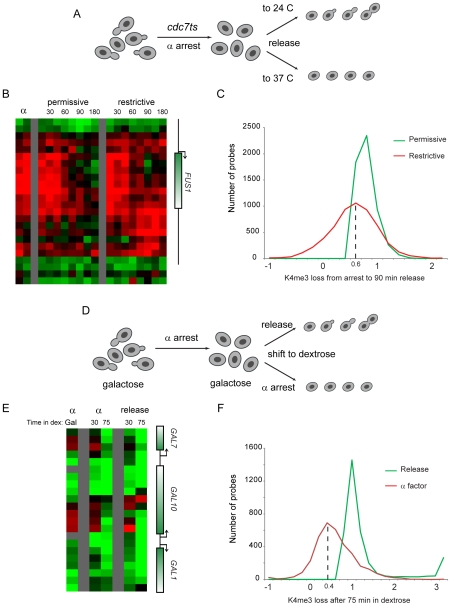Figure 6. Replication is not required for loss of H3K4 methylation.
(A) Schematic of experiment. cdc7ts yeast were arrested for four hours with alpha factor, then were released from alpha arrest to grow either at the cdc7 permissive (24°C) or restrictive (37°C) temperature. H3K4me3 mapping was carried out on custom (B) and whole-genome (C) tiling microarrays. (B) FUS1 methylation loss does not require genomic replication. Data from two time independent courses of alpha factor release are shown for 29 nucleosomes surrounding the FUS1 gene. Time after release is shown in minutes above each time course. (C) Loci that lose methylation at the permissive temperature generally also lose methylation at the restrictive temperature. Probes with a methylation loss of over 40% from alpha factor arrest to 90 minutes release at the permissive temperature were selected. The extent of methylation change is histogrammed for permissive and restrictive temperature release (positive values indicate demethylation from arrest to the release time point)—x axis values are log(2). Probes that lose methylation at the permissive temperature generally also lose methylation at the restrictive temperature, albeit to a slightly lesser extent. We note that much of the variance at the permissive temperature can be ascribed to the heat shock of the restrictive temperature – most of the probes at the left of the histogram (ie not demethylated, or even overmethylated, at 37°C) are heat shock-induced genes, while many of the probes that lose methylation more at 37°C than at 24°C are associated with genes repressed during heat shock (analysis not shown). (D) Schematic of alternative system for replication-independent erasure. bar1Δ yeast were grown continuously in galactose, then arrested with alpha factor. Galactose-regulated genes were then shut off by shifting cells to dextrose, and were concomitantly either released from alpha factor arrest or maintained in alpha factor. (E) Methylation erasure over GAL genes does not require replication. Data from whole-genome tiling arrays shows high levels of H3K4me3 at the 5′ ends of GAL1, GAL7 and GAL10 when cells are arrested in alpha factor with galactose. Shift to dextrose results in loss of methylation whether cells are maintained in alpha factor or allowed to re-enter the cell cycle. (F) Loci that lose methylation during cell cycle release into dextrose generally also lose methylation when maintained in alpha factor. Analysis is similar to that shown in (C), but probes exhibiting higher methylation in alpha factor+galactose than in midlog+galactose (log2>0.75 difference) were eliminated to exclude confounding effects of erasure of these genes during release from alpha factor arrest. Furthermore, only probes with methylation decreases of 75% or more after 75 min of release into dextrose are shown.

